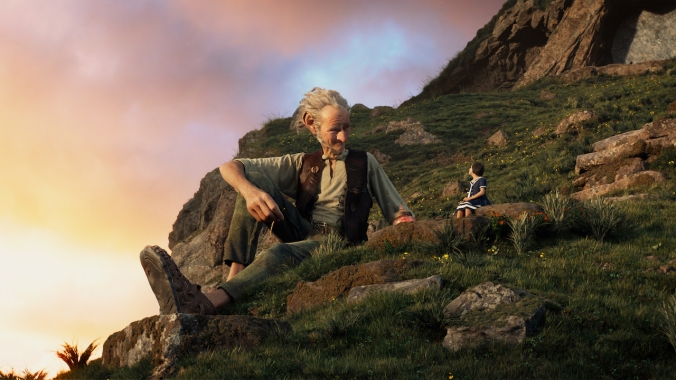
I like Steven Spielberg and I like Roald Dahl, so when The BFG opened last summer to middling reviews and box office numbers that could be politely described as “disappointing”, the bad buzz didn’t faze me. Spielberg can find a valuable voice when he zooms in on a lonely child—E.T. (1982), Empire of the Sun (1987), A.I. (2001)—and the idea of a reunion with E.T. screenwriter Melissa Mathison to make an old-fashioned kids movie sounded enticing. So after reading several industry think-pieces about how the Spielberg brand might not appeal to audiences as much as it used to, I decided to see the movie. I was living in New York City at the time, and it was during a heat wave, one of those hot, ungodly humid summer days where the city air feels thick and every subway station is like the world’s filthiest sauna. I walked around Prospect Park to get to the theater and arrived feeling unpleasantly like I was about to pass out. I asked for a ticket for The BFG, and the girl behind the counter said, “Are you sure?” It turns out, the air conditioning had broke in one of their screens, so they’d moved The BFG to the Room With No Ventilation and kept the rest running as normal. I decided it wasn’t meant to be, bought a drink from a Mister Softee truck, and spent my ticket money on taking a cab home. The think-pieces were onto something.
But now The BFG is streaming on Netflix, available to all current subscribers at a very reasonable marginal cost of $0, so I dipped in. And I exited the film the way I began it: wondering whether or not making an “old-fashioned kids movie” is even possible today, given that a certain level of technocratic bombast comes as a summer movie prerequisite. Aside from being a Disney film, you should also note the involvement of the production house Walden Media, which was set up with the admirable goal of recreating the feeling of children’s lit in children’s films. They’ve had a hand in adapting such school library classics as The Chronicles of Narnia, Charlotte’s Web, Holes, and Bridge to Terabithia, and I’ve often noticed a somewhat schizoid pull in their films between the modest, gentle nature of a good children’s book and the way that, after Lord of the Rings, everything needs to be epic.
The BFG is not a disaster, but it is a film that must be approached as a gleaner, sifting through the spectacle and occasional cheap gag (like a crotch joke writ large) for several wonderful moments that inspire thinking/feeling rather than drowning them out. There is an admirable elegance to the way Spielberg’s camera swoops and whooshes through the green-screened sets. The two actors who occupy most of screen (a motion-captured Mark Rylance and a spunky young Ruby Barnhill) are both excellent. The emotional core, about dreams being captured and delivered to children, is certainly up Spielberg’s alley. And when he let’s lyricism take over—always his most underrated strength—he captures scenes worthy of the enterprise. The part that will turn most people off is also the one that best captures the movie’s head-scratching contradictions: an awkward, extended set-piece near the end built around farting in Buckingham Palace. Despite any knee-jerk reaction to blame Spielberg or Disney, I can assure you that farts belong to Dahl—as a writer, he grasped that children are much ruder than their parents might wish them to be. But the difference between how such scenes play out on page and screen is a cautionary tale if there ever was one. The idea of farting in front of the Queen may have been subversive in a book, particularly when delivered by right proper British parents reading to their children at night. Visualized on screen, with all of 2016’s worst tendencies for oversaturated live-action cartoons, it’s scarcely less crass than its more cynical competition. Which is to say, whether it’s a battle between giants or a monster-child friendship or a Quentin Blake drawing or the world’s most committed flatulence joke, there are aspects of children’s literature that movies will always have to be careful about tackling, lest the might of a nine-figure budget be easily outpaced by a slim paperback written at a 4th grade level.